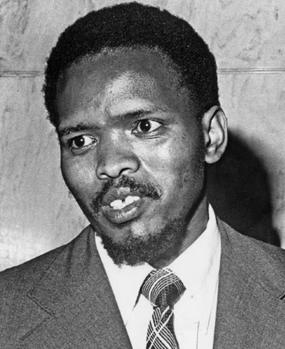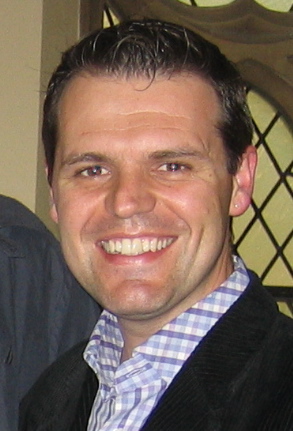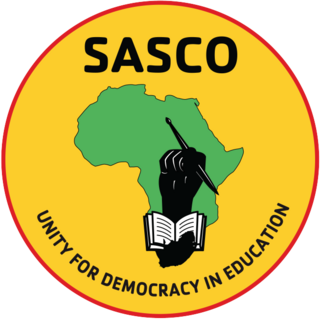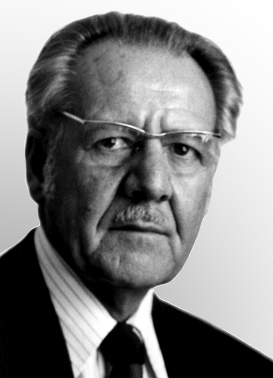Related Research Articles

Bantu Stephen Biko OMSG was a South African anti-apartheid activist. Ideologically an African nationalist and African socialist, he was at the forefront of a grassroots anti-apartheid campaign known as the Black Consciousness Movement during the late 1960s and 1970s. His ideas were articulated in a series of articles published under the pseudonym Frank Talk.

A ban is a formal or informal prohibition of something. Bans are formed for the prohibition of activities within a certain political territory. Some bans in commerce are referred to as embargoes. Ban is also used as a verb similar in meaning to "to prohibit".

Christiaan Frederick Beyers Naudé was a South African Afrikaner Calvinist Dominee, theologian and the leading Afrikaner anti-apartheid activist. He was known simply as Beyers Naudé, or more colloquially, Oom Bey.
The following lists events that happened during 1931 in South Africa.
The University of Newcastle Students' Association (UNSA) is the student organisation at the University of Newcastle, NSW, Australia (UON). The organisation provides a range of student services and supports campus life activities and events. UNSA facilitates the UON's elected Student Representative Council (SRC) which is the peak representative body for all students at the University.

The Bureau for State Security was the main South African state intelligence agency from 1969 to 1980. A high-budget and secretive institution, it reported directly to the prime minister on its broad national security mandate. Under this mandate, it was at the centre of the Apartheid state's domestic intelligence and foreign intelligence activities, including counterinsurgency efforts both inside South Africa and in neighbouring countries. Like other appendages of the Apartheid security forces, it has been implicated in human rights violations, political repression, and extra-judicial killings.
The South African Students' Organisation (SASO) was a body of black South African university students who resisted apartheid through non-violent political action. The organisation was formed in 1969 under the leadership of Steve Biko and Barney Pityana and made vital contributions to the ideology and political leadership of the Black Consciousness Movement. It was banned by the South African government in October 1977, as part of the repressive state response to the Soweto uprising.

Salim Ahmed Salim is a Tanzanian politician and diplomat who has worked in the international diplomatic arena since the early 1960s. He served as prime minister for one year, from 1984 to 1985.

Alwyn Louis Schlebusch was a South African politician, the only holder of the title Vice State President of South Africa from 1 January 1982 to 14 September 1984. He was an Afrikaner with a surname of German origin. He was born in Lady Grey, Eastern Cape. He was the son of Charel Johannes Schlebusch and Elizabeth Cornelia Myburgh and eldest brother of Charel Johannes Schlebusch, Elsie Cornelia Schlebusch and Anna Christina Schlebusch.

The End Conscription Campaign was an anti-apartheid organisation allied to the United Democratic Front and composed of conscientious objectors and their supporters in South Africa. It was formed in 1983 to oppose the conscription of all white South African men into military service in the South African Defence Force.
The National Union of South African Students (NUSAS) was an important force for liberalism and later radicalism in South African student anti-apartheid politics. Its mottos included non-racialism and non-sexism.

Dion Angus Forster is an academic and clergyman. He serves as a professor of Public Theology in the Faculty of Religion and Theology at the Vrije Universiteit Amsterdam.
The Christian Institute of Southern Africa was an ecumenical progressive organisation founded by English and Afrikaans clergy in December 1963 to unite South African Christians against apartheid. The CI became deeply involved with black activists such as Steve Biko, and was banned by the state in 1977.

Peter Ralph Randall (1935–2024) was an anti-apartheid publisher in South Africa, who was banned by the former South African government between 1977 and 1981. He later became a professor in charge of teacher education at the University of the Witwatersrand, Johannesburg.

Internal resistance to apartheid in South Africa originated from several independent sectors of South African society and took forms ranging from social movements and passive resistance to guerrilla warfare. Mass action against the ruling National Party (NP) government, coupled with South Africa's growing international isolation and economic sanctions, were instrumental in leading to negotiations to end apartheid, which began formally in 1990 and ended with South Africa's first multiracial elections under a universal franchise in 1994.

The Potchefstroom University for Christian Higher Education was a South African university located in Potchefstroom. Instruction was mainly in Afrikaans. In 2004, the university was merged with other institutions to create the North-West University.

Max Price served as the vice-chancellor and principal of the University of Cape Town (UCT) in South Africa, succeeding Njabulo Ndebele. He held this position for a decade, from 19 August 2008, until 30 June 2018.

The South African Students Congress (SASCO) is a South African student organisation currently led by Alungile Kamtshe as the organization's President. SASCO was founded in September 1991 at Rhodes University in Grahamstown, Eastern Cape, through the merger of the South African National Student Congress (SANSCO) and the National Union of South African Students (NUSAS). The predecessor of SANSCO, the Azanian Students Organisation (AZASO) was initially formed in 1979 as a continuation of the South African Students Organisation (SASO) when the latter was banned by the Apartheid government. SASO, in turn, got started by Steve Biko as a breakaway faction from NUSAS in the 1960s.

Albertus (Albert) Stephanus Geyser was a South African cleric, scholar and anti-apartheid theologian. Geyser became an outcast in the white Afrikaner community because of his theological opposition to apartheid and to the Broederbond, the secret male Calvinist organisation that covertly steered South African politics during the apartheid era. He obtained master's and doctoral degrees cum laude, specializing in Greek and Latin. At the age of 27 he was appointed lecturer, and a year later, professor in the Theological Faculty of the Nederduitsch Hervormde Kerk at the University of Pretoria. Geyser contributed to the first annotated edition (1953–1958) of the Bible in Afrikaans, founded the Christian Institute, and was the first South African to be elected as a member of Studiorum Novi Testamenti Societas.
Jan Hendrik Steyn was a South African judge, a development leader and campaigner for social justice. He was an advocate for justice and equality in The Republic of South Africa and served South Africa and several Southern African Development Community countries, in the highest capacity in the fields of law and development. In recognition of his service he was awarded honorary doctorates from five South African universities.
References
- ↑ "Beyers Naude." News24.com. 7 September 2008. Retrieved 22 August 2008.
- 1 2 A Culture of Censorship: Secrecy and Intellectual Repression in South Africa. Christopher Edmond Merrett. Mercer University Press, 1995, p.60.
- 1 2 3 4 5 A Culture of Censorship: Secrecy and Intellectual Repression in South Africa. Christopher Edmond Merrett. Mercer University Press, 1995, p.92.
- 1 2 "SA's only state vice-president dies at 90." Mail & Guardian. 7 January 2008. Retrieved 22 August 2008.
- ↑ "Hendrik Jacobus (Kobie) Coetsee." SA History Online. Retrieved 22 August 2008.
- ↑ Change in South Africa: Blind Alleys Or New Directions? Christopher R. Hill. Rowman & Littlefield, 1983, p.157.
- ↑ "Brief History of the Commission." The Independent Commission for the Remuneration of Public Office Bearers, South Africa. Retrieved 22 August 2008.